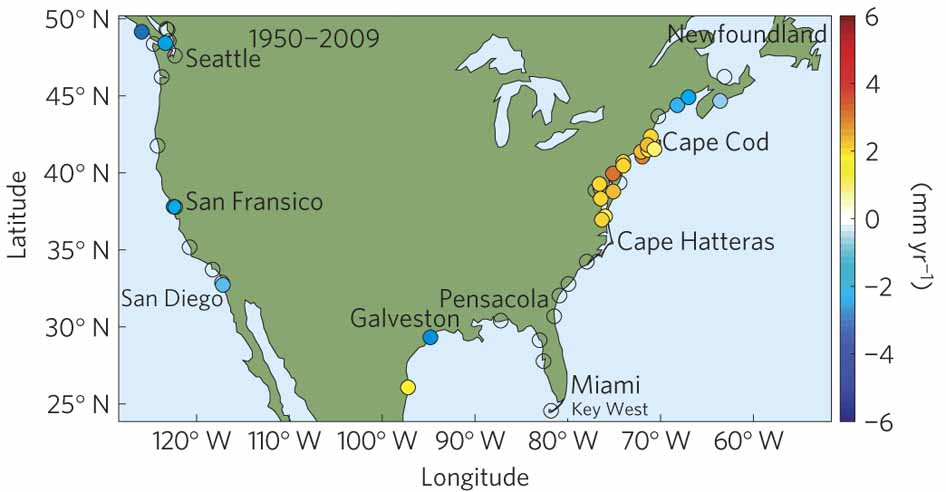 Predicted sea level rise highest from Massachusetts to North Carolina. Image: U.S. Geological Survey
Predicted sea level rise highest from Massachusetts to North Carolina. Image: U.S. Geological Survey
A few folks have commented on the record heat Colorado is experiencing this month. My response: it’s just a preview. And, it should'nt come as a surprise. This past May was the hottest month in North America on record. Since we are becoming accustomed to breaking records, let me repeat: not average; not below average; not above average; the hottest.
As for Coloradan’s wondering what this summer would be like, we now know. For Denver, today’s headline reads: “Heat wave of Denver weather melting away records; hits 105 again.” It is hard to keep count of the fires in the state; a new one was just announced in south Boulder. With the heat and dry conditions, it’s shaping up to be record-breaking summer.
And, it looks like Colorado is not alone. Various areas of the country are getting Previews this month, either in fact or by prediction. The flash floods in Duluth, Minnesota dumped 5-9 inches overnight “sending what looked like raging rivers through Duluth's streets.” (Can we attribute this specific flood to climate change? No. Does planetary warming result in more saturated air that is going dump water somewhere? Yes.) The U.S. Geological Survey has determined the East Coast from Massachusetts to North Carolina is a “hot spot” for sea level rise with levels predicted to rise “three to four times faster than the global average.” And, for Southern California:
By the middle of the century, the number of days with temperatures above 95 degrees each year will triple in downtown Los Angeles, quadruple in portions of the San Fernando Valley and even jump five-fold in a portion of the High Desert in L.A. County, according to a new UCLA climate change study.
At least we are getting a Preview and we should not be surprised by climate extremes the rest of the decade and beyond.
What do we do now? Many already conserve, recycle, or are otherwise proactive in ways big and small. We all need to claim our ecological citizenship and not wait for governmental action. Whether we care or not, we are all ecological citizens. What we individually take from, or give back to our global ecology eventually comes back to support us or bites us. Although I am optimistic and believe we will, in the clutch, solve the climate spiral, we will hit the guardrail. The question is, how hard?